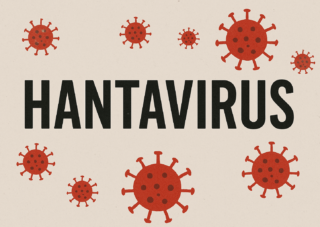What is Hantavirus and How Can It Be Prevented? Part 1

Understanding Hantavirus: What You Need to Know
Hantavirus is a serious infectious agent that demands our attention due to its potential impact on human health. This virus, primarily transmitted through contact with the droppings, urine, or saliva of infected rodents, poses a significant threat as it can lead to severe respiratory illnesses in humans. Notably, one of the most critical conditions caused by hantavirus is Hantavirus Pulmonary Syndrome (HPS), a rare but potentially fatal disease characterized by flu-like symptoms that rapidly progress into acute respiratory distress. Understanding the facts about hantavirus is crucial for both prevention and early detection. The virus is predominantly carried by wild rodents such as deer mice and cotton rats, often found in rural or semi-rural environments where people may come into close contact with these carriers. It’s important to note that while not all rodent interactions will result in transmission, areas where rodent populations thrive tend to be higher risk zones for hantavirus exposure. The onset of HPS can be deceptively mild at first but quickly escalates. Initial symptoms often include fever, muscle aches, and fatigue—common indicators that could easily be mistaken for less serious illnesses like the flu. However, within days or weeks, these symptoms can advance alarmingly into severe respiratory difficulties requiring immediate medical attention. Preventive measures are key in mitigating the risk of hantavirus transmission. These include maintaining cleanliness in areas prone to rodent habitation and sealing potential entry points into homes or storage spaces. Education about hantavirus and its modes of transmission plays a vital role in public health efforts to reduce incidences of this disease. In conclusion, increasing awareness about hantaviruses’ definition and facts isn’t just informative—it’s potentially life-saving. By recognizing how this virus spreads and understanding the grave nature of diseases like Hantavirus Pulmonary Syndrome associated with it, individuals can take proactive steps towards safeguarding their health against this invisible yet formidable threat.
The Dangers of Hantavirus: Why It’s More Serious Than You Think
Understanding the symptoms of hantavirus is crucial because early detection can make a significant difference in outcomes. Initially, individuals may experience flu-like symptoms, including fever, muscle aches, and fatigue. These non-specific signs can easily be mistaken for less severe illnesses, which underscores the importance of awareness. As the infection progresses, more severe symptoms such as coughing and shortness of breath may develop, often indicating a life-threatening condition known as hantavirus pulmonary syndrome (HPS). The severity of a hantavirus infection cannot be overstated; this virus is notorious for its rapid progression and high mortality rate if not treated promptly. Hantavirus infections demand immediate medical attention due to their potential to cause respiratory failure and other critical health issues. Why is hantavirus so dangerous? The answer lies in its ability to affect the lungs so critically and swiftly that it can lead to dire complications with minimal warning. Once inhaled through exposure to infected rodent droppings or urine, the virus attacks the respiratory system with alarming speed. Complications from hantavirus are serious and can include acute respiratory distress syndrome (ARDS), where fluid builds up in the lungs’ air sacs, severely impeding breathing function. This condition requires intensive care support—and even then—the chances of survival diminish without timely intervention. Therefore, recognizing these risks highlights why vigilance towards possible hantavirus exposure is essential. Understanding its dangers can help prevent tragic outcomes by encouraging preventive measures in environments susceptible to rodent infestations and promoting immediate healthcare engagement at any sign of illness related to potential exposure.




